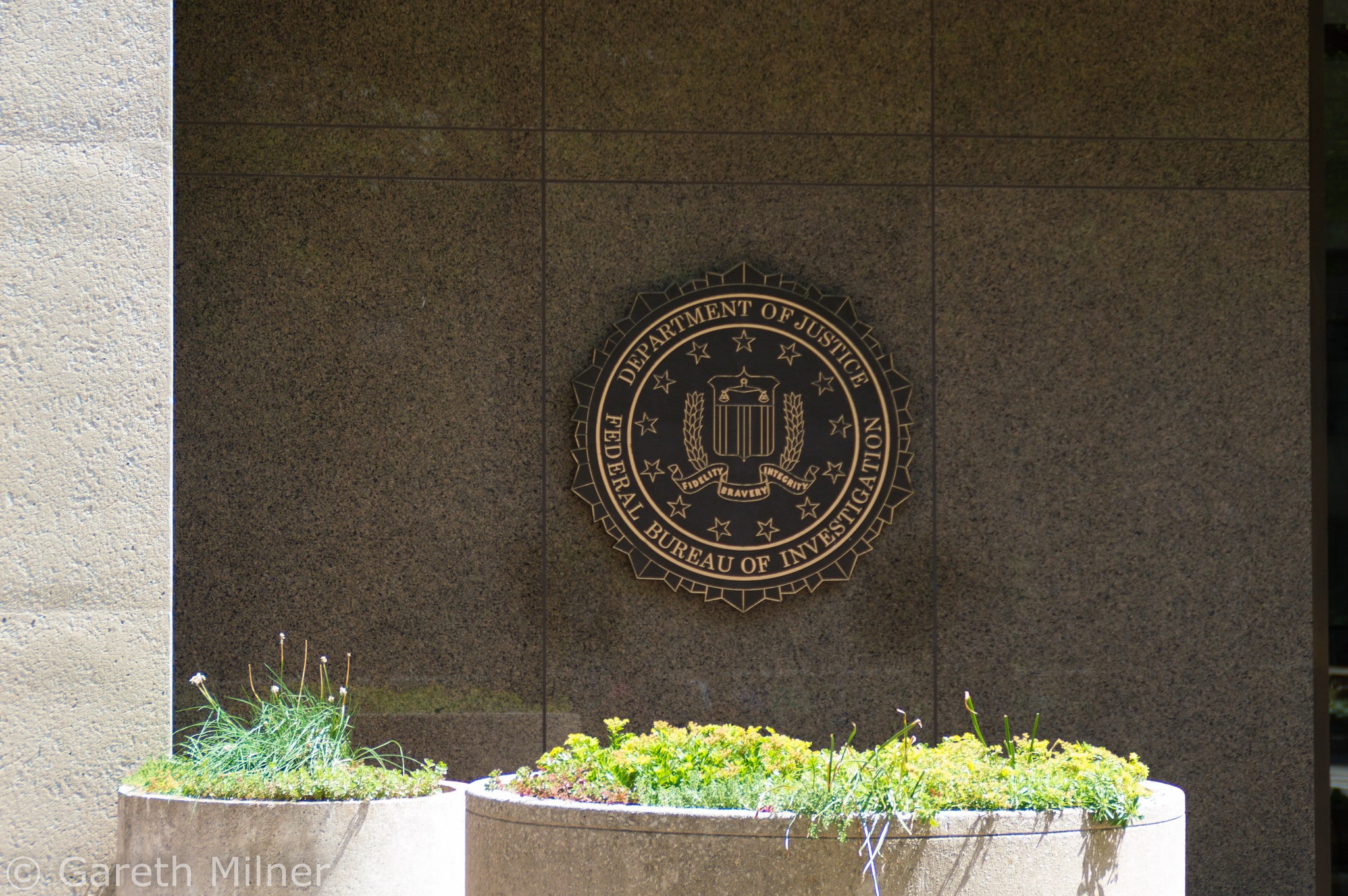As protests against police racism and violence continue throughout the US, President Donald Trump wants your attention focused on the loose left-wing activist coalition, Antifa (“anti-fascist”). “The United States of America will be designating ANTIFA as a Terrorist Organization,” he tweeted on May 31, linking the group to protests and violence.
The same day, Trump’s chief spokesperson told cable media that the president will prosecute Antifa as “a domestic terrorism entity.” Attorney General William Barr also officially stated that the Department of Justice (DOJ) would begin investigating Antifa through its 56 regional FBI terrorism task force offices.
What will happen if Trump begins a formal investigation into Antifa? He would likely run into legal challenges based on the First Amendment. But his attempt could still harm political activists in the US. It be far from the first time the federal government has investigated left-wing activists, and judging by history, an investigation would likely amount to nothing more than political persecution of the president’s opponents—resulting in unjustified surveillance, harassment and violence.
The strangest thing about an investigation of Antifa is that it is not actually a formal group. Antifa is merely a term that various anti-fascist, anti-racist and left-wing activist groups use to identify themselves.
The term originated in 1930s in Europe, during the rise of fascism in Germany, Italy and elsewhere. In recent years, it has resurfaced among activists protesting the Trump administration, police violence, or other issues. Activists identifying as Antifa may support direct action, civil disobedience, political violence, or other tactics. Antifa, again, has no formal organization or leadership.
So legally, it is difficult for the federal government to designate “Antifa” a domestic terrorism group. Domestic terrorism is defined in federal law, but there is no specific criminal penalty attached to it.
The First Amendment allows even overtly hateful groups, such as the KKK or neo-Nazis, to exist, protected by freedoms of speech and political assembly. The feds can only indict or prosecute people who commit or plan violent acts. Under current laws, a president’s attempt to classify a political group as terrorists can easily be challenged as a move to silence political opposition.
Members of Trump’s own administration have explained this in testimony to Congress. “Designating domestic groups as ‘domestic terrorist organization’ and picking out particular groups that you say disagree with their views and so forth is going to be highly problematic,” a top DOJ attorney told Congress in 2019.
“For us, antifa (is) more of an ideology than an organization,” said Trump’s FBI director, Chris Wray, to Congress last year. “We don’t think of antifa so much as an organization.”
To understand why some of Trump’s own officials have put the brakes on this kind of move, consider that it’s not just Republicans trying to investigate left-wingers—it’s Democrats too. After the El Paso, Texas Walmart shooting in August 2019, when a white gunman killed 23 people including eight Mexicans, some Democratic politicians called for the federal government to designate white supremacist groups as domestic terrorists and prosecute them as such. (In fact, the US Attorney for El Paso announced he was investigating the case as domestic terrorism.)
But critics, including the ACLU, warned then that doing so was not legally necessary. Governments can prosecute people under other existing statutes, including weapons-related offenses and hate crimes. Anyone who makes or uses an explosive, considered a weapon of mass destruction, can also be prosecuted for terrorism. Codifying a penalty for domestic terrorism, they argued, risks perpetuating some of the same civil liberties abuses of the post-9/11 era against those accused of foreign terrorism.
But we don’t need to attend a constitutional law seminar to theorize about what would happen if Trump follows through on his threats to prosecute Antifa: Just take a brief look at US history.
Most notably, the FBI ran the Counter Intelligence Program (COINTELPRO) between 1956-1971. It existed to investigate radical political groups who might be affiliated with foreign “enemies.” But most of its focus was on civil rights and Black nationalist groups.
During COINTELPRO’s history, the FBI wiretapped Martin Luther King, Jr. and his allies, and attempted through various means to discredit, harass or “neutralize” him—including by anonymously encouraging him to take his own life. COINTELPRO also focused heavily on chapters of the Black Panther Party. The program was implicated in connection with a 1969 Chicago police raid that led to the murders of Fred Hampton and Mark Clark, two Black Panther Party members.
In more recent years, the FBI has attracted fierce criticism for its handling of Black activists protesting police violence. A leaked 2017 intelligence report warned law enforcement officials of “Black identity extremism,” whose members’ “perceptions of police brutality against African Americans” was motivating “an increase in premeditated, retaliatory lethal violence against law enforcement.”
After backlash, the FBI promised to abandon use of the term. But that didn’t stop it from setting up a program called IRON FIST, designed to infiltrate and surveil Black activists using undercover agents.
The sinister history of politically motivated investigations and covert actions against Black Americans should alert us all to Trump’s threats. Unleashing the FBI against an undefined Antifa threat is in direct opposition to addressing the injustices against Black Americans that have sparked such profound unrest.
Photo of the FBI headquarters by Gareth Milner via Flickr/Creative Commons 2.0.





Show Comments